-
About
- About Listly
- Community & Support
- Howto
- Chrome Extension
- Bookmarklet
- WordPress Plugin
- Listly Premium
- Privacy
- Terms
- DMCA Copyright
- © 2010-2025 Boomy Labs
Listly by Shyam Subramanyan
It was mostly underground and a hobby for a while, now Bitcoin is making a push into mainstream. This is a curated list of Bitcoin in the media.
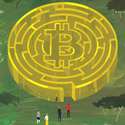
Bitcoin, a purely digital currency, is backed by no commodity and governed by no central bank, but it exists because a small number of humans have chosen to believe in its legitimacy. Its pseudonymous creator (or, more likely, creators) "Satoshi Nakamoto" willed it into existence in 2009, not only describing how the so-called cryptocurrency would work but shipping a full working implementation.

The Solution What if we gave this ledger - to everybody? Instead of the ledger living on a Blizzard computer, it'll live in everybody's computers. All the transactions that have ever happened, from all time, in digital apples will be recorded in it. You can't cheat it.

As the world's first decentralized digital currency, Bitcoin has the potential to revolutionize online payments systems in a way that benefits consumers and businesses. Instead of using an intermediary such as PayPal or submitting credit card information to a third party for verification-both of which often include transaction fees and other restrictions-Bitcoin allows individuals to pay each other directly for goods or services.
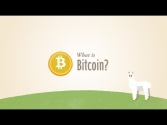
More information on http://www.weusecoins.com This video is a short animated introduction to Bitcoin, made possible with donations from the Bitcoin community.
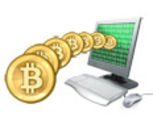
Recent weeks have been exciting for a relatively new kind of currency speculator. In just three weeks, the total value of a unique new digital currency called Bitcoin has jumped four times, to over $40 million. Bitcoin is underwritten not by a government, but by a clever cryptographic scheme.

Bitcoin is at the forefront of 'hacktivism', giving its users a free alternative to contemporary financial mechanisms.

Much of what has been written so far about bitcoins has centered on the perceived dangers in their relative anonymity, the irreversibility of transactions, and on the fact that they can be used for money laundering and for criminal dealings, such as buying drugs on the encrypted Web site Silk Road.
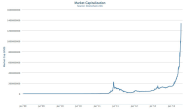
A few days ago, the value of all the bitcoins in the world blew past $1 billion for the first time ever. That's an impressive achievement, f...

There's nothing like a dollar bill for paying a stripper. Anonymous, yet highly personal-wherever you use it, that dollar will fit the occasion. Purveyors of Internet smut, after years of hiding charges on credit cards, or just giving it away for free, recently found their own version of the dollar-a new digital currency called Bitcoin.

Bitcoin is a theoretical and practical breakthrough that makes it possible to decentralize services we couldn't previously decentralize. To elaborate: Bitcoin isn't just a currency but an elegant universal solution to the Byzantine Generals' Problem[1], one of the core problems...

Bitcoin, the world's first open-source cryptographic currency, which has been on a tear since the beginning of this year, set a new record on 28 March, when the price listed on the largest online exchange rose past US $95. With nearly 11 million bitcoins in circulation, this sets the total worth of the currency at just over $1 billion.
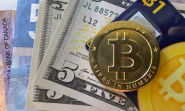
Among the many unpleasant discoveries made by those who stashed their cash in Cypriot banks is that the island's government could stop them moving their money elsewhere. Capital controls are supposed to be a thing of the past, a figment of the pre-globalised world.
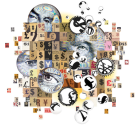
In November 1, 2008, a man named Satoshi Nakamoto posted a research paper to an obscure cryptography listserv describing his design for a new digital currency that he called bitcoin. None of the list's veterans had heard of him, and what little information could be gleaned was murky and contradictory.

I wrote a post about Bitcoin last November wondering if it was over or if we were just in a down phase in the hype cycle (http://www.avc.com/a_vc/2011/11/bitcoin.html). In the nine months since that post, Bitcoin has made a nice recovery. The price is up and volume of transactions is increasing.

MILTON FRIEDMAN famously called for the abolition of the Federal Reserve, which he thought ought to be replaced by an automated system which would increase the money...
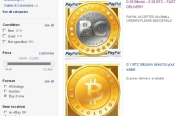
Bitcoin, a form of electronic money, is grabbing attention in the financial world after the price went stratospheric in recent weeks - but most people have never heard of it.

The rollercoaster ride of Bitcoin's valuation has, after a couple of months of being pulled up the roller, hit the "coaster" part. Now is the time where the people on board have to decide if they're going to scream and jump out - which a fair chunk of money seems to be doing just now - or grit their teeth and hold on to the sides.
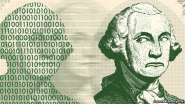
IN 1999 an 18-year-old called Shaw Instead, “monetary policy” is determined by clever algorithms. New Bitcoins have to be “mined”, meaning users can acquire them by having their computers compete to solve complex mathematical problems
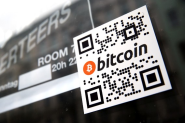
Bitcoin is a fantasy. The Internet's currency-a secure, private, decentralized type of money that makes possible anonymous and virtually costless transactions across borders-contains the seeds of its own destruction. More than anything else, it resembles a Ponzi scheme-and the wild claims made on its behalf reveal a great deal about...
